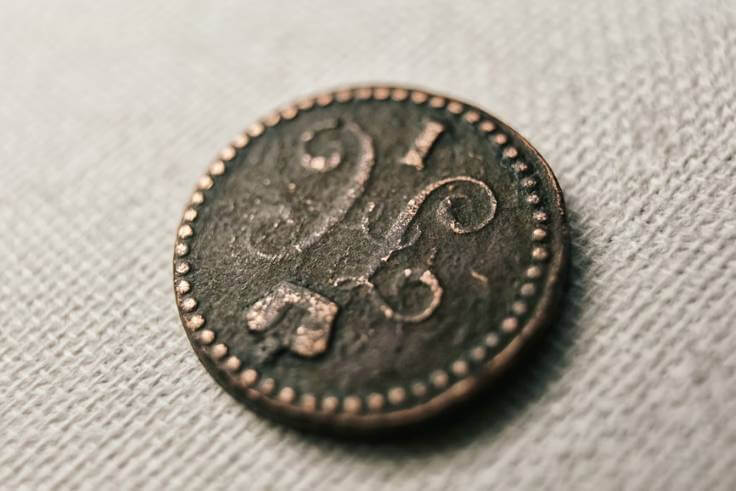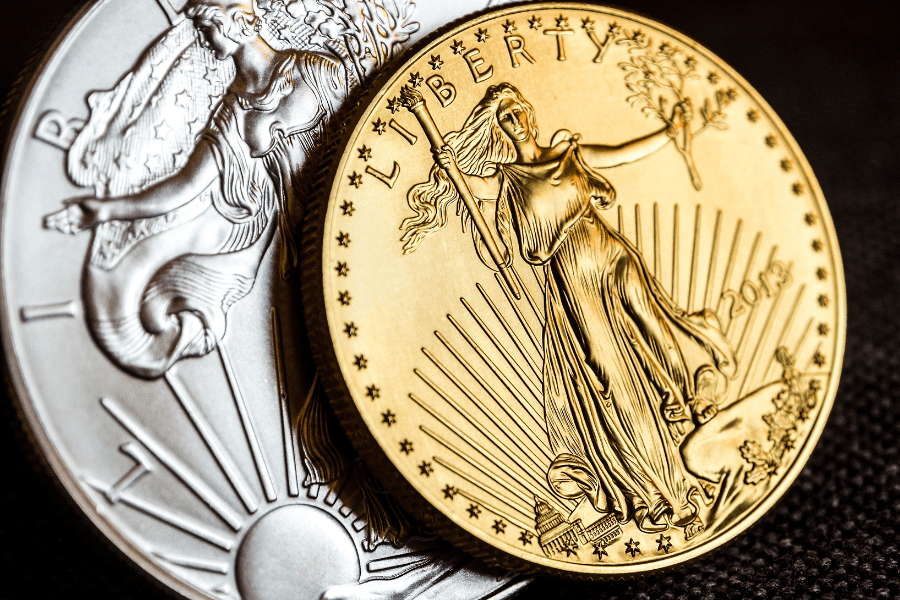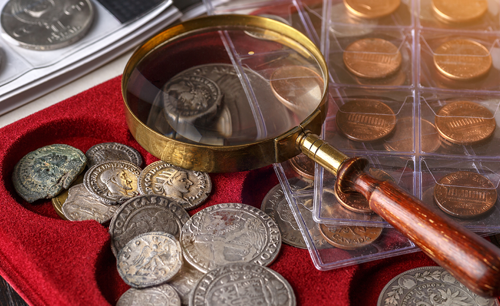Good Facts For Picking Dime And Peso
Good Facts For Picking Dime And Peso
Blog Article
How Can I Utilize Databases To Study Numismatics With Regards To Regional And Global Associations?
For conducting such research, follow this procedure: Here's a method of conducting such research: Database selection: Choose databases that are specialized in the numismatic community, for instance, websites of major numismatic society like the American Numismatic Association(ANA) or the International Numismatic Council(INC) or a regional associations such as the Numismatic Association of Australia. JSTOR along with other academic repositories and databases, can give you access to scholarly papers and conference proceedings.
Define Research Focus: Specify your research objectives. Do you want to investigate the history and current activities of global associations for numismatics, regional collaborations, conference, publications, or numismatic themes discussed within these organizations? Clarify your focus to direct your search.
Search Strategies: Keywords like"numismatic organisations, "global Numismatics" or "regional numismatics" are beneficial. It is also possible to include the names of associations and geographical regions, if you want. Filter results using advanced search features. This could include filtering by date, document type such as conference papers and newsletters of associations, or by geographical scope.
Access data on international and regional numismatic societies, including their purpose, history, and membership. You can also find out information on their publications and activities. Find information on previous and forthcoming workshops, conferences, and collaborative research projects. Browse databases with information on members, leadership of associations and contact information.
Analyse the data in order to assess the impact and role of regional and global numismatic organizations. Find out how these associations aid in the development of the field of numismatics, encourage international collaborations, and spread research through publications and conferences.
Cross-Referencing - Check the accuracy of your findings by cross-referencing data from various sources and databases. Review the projects and initiatives that different associations have undertaken to create an accurate view of numismatic trends both at a global and regional level.
Documentation - Record your findings with a reference to the sources you have used and noting any methodologies used. Provide the databases you that you used, the terms that you used to search for, and the relevance to your query.
Keep up to date: Numismatic organizations are constantly changing with new publications, as well as conferences. They also collaborate on projects. Stay up to date by following the latest updates on websites of associations newsletters, newsletters, as well as academic databases to stay up-to-date with the latest developments in both regional and global numismatics.
These steps will help you utilize databases to research numismatics with respect to global and local associations. This method lets you study the structure of an organization as well as the scholarly activities and collaborative efforts which shape the numismatics field at a global as well as regional scale. Have a look at the recommended coin show for more recommendations including gold coins, coin book, coin blank, gold coins, currency dealer, banknote magazine, german coins, banknote album, uncirculated coins, banknote marketplace and more.
How Can I Utilize Numismatics To Conduct Research On Refineries In A Database?
Here's a method for conducting this type of research: Database Selection: Select databases that focus on minting processes, precious metals and the past and present technology of refineries. Here's a method to conduct research on this subject: Database Selection: Choose databases that are specialized in precious metals refining, minting, and the numismatics field. Databases, for instance, are available from major refineries including Johnson Matthey, Heraeus and mints run by the government.
Define Research Focus: Specify your research objectives. Are you interested in learning more about the past of the refinery and operations, technological advancements that have occurred in the refining process, the production and certifying of coins and bullion? Or even the certifications and standards for precious metals? Find out the purpose of your research.
Search Strategy: Use words like "precious refineries for metals," "minting processes," "bullion production," and include specific refinery names, geographical regions or historical dates when relevant. Utilize advanced search options to sort results by the type of document, the date (such as technical reports or production figures) or refinement techniques.
Data Collection: Access information on refineries, including dates of their creation as well as refining techniques used (such as electrolytic refining, chemical refining) as well as the kinds of precious metals processed (gold, silver, platinum) as well as any noteworthy historical developments or innovations in refining technologies.
Analyze your data to determine the role of refineries in the numismatics world. Examine the role played by refineries in providing precious metals for bullion and coin production. They also provide quality control and standardization during minting processes. Compare the practices and technologies employed by various mints or refineries.
Cross-Referencing - Check your results by cross-referencing your data in several databases. This ensures that your research is accurate and complete, providing complete information about the refineries' role in numismatics.
Documentation. Record your research findings systematically by citing all sources used and describing the research methods you have employed. Keep track of the details like the databases you've used, your search terms, and their relevance to the research questions.
Stay Current: Refining technology and standards change over time. Follow industry publications and refinery reports to stay up-to-date on the latest developments and their impact on the field of numismatics.
By following these steps, you'll be able to effectively make use of databases to research the role of numismatics and refineries. This approach enables an extensive analysis of technological advances, quality-control measures, and the past contributions of refineries to the production of bullion, coins as well as other precious metals around the world. View the top central bank for site recommendations including proof coins, legal tender, banknote history, coin, pound, banknote auction, banknote identification, coin identification, coin show, coin certification and more.
Where Can I Find Legal Experts Who Are Numismatics Experts Through A Database?
For a structured method of conducting this research: This is a method that can be structured to conduct such research. Database Selection: Select databases that specialize on legal research, numismatic law, court cases dealing with the numismatic issue, as well as academic publications about legal aspects of numismatics. A few examples are legal research platforms such as Westlaw or LexisNexis; numismatic laws journals, as well as publications of the Numismatic Society.
Define Research Focus: Specify your research objectives. Are you interested in understanding legal frameworks governing coinage and currencies, numismatic disputes laws governing the production of coins and circulation, or definitions of authenticity of numismatics and ownership? Clarify the focus of your research.
Search Strategy: Use particular legal concepts like ownership or authenticity in your search. Additionally, you can include historic cases. Advanced search tools to filter results by date, legal subject (numismatics) as well as by jurisdiction (national or international), and other factors.
Data Collection: Access to legal precedents such as court decisions, legislative texts and scholarly articles on numismatic law. Collect details, such as summaries of cases as well as legal analyses and interpretations of statutes pertinent to the case. Also, you should collect historical perspectives.
Study the data and learn about the challenges faced by numismatics. Learn how the legal frameworks affect numismatic transactions and other processes like collection management, authentication, as well as international trade. Compare the legal frameworks and the interpretations of different jurisdictions.
Cross-Referencing. Verify that your information is accurate by referencing it in various databases. This includes legal journals, court documents as well as academic publications. This ensures the accuracy and completeness of your study. It also provides an extensive overview of the legal landscape for numismatics.
Documentation: Record your findings thoroughly by citing sources and noting methodologies used. Define the databases utilized, the keywords you used to search for, as well as the relevance of your search to your question.
Stay up-to-date The law of numismatics and its interpretations are subject to legislative changes and judicial decisions. Keep up to date by reading the latest news from databases of legal information and books on numismatic laws, as well as news from numismatic organizations regarding legal changes.
Databases can be used to research numismatics and legal experts by following these easy steps. This allows for in-depth examinations of the legal issues as well as scholarly interpretations and legal frameworks that are relevant to the field of Numismatics. Read the recommended read more here on coin artist for website recommendations including banknote news, coin minting, proof, coin marketplace, banknote certification, bullion, coin catalog, banknote authenticity, commemorative, banknote grading and more.
What Can I Do To Use An Online Database To Conduct Research On Numismatics And Educational Institutions
For numismatics research in educational institutions, databases are employed which specialize in academic programs, scientific initiatives, museum collections, and scholarly publications. It is a method that is structured to conduct such research. Examples of these databases include libraries at universities academic journal databases like JSTOR, museum databases such as those offered by numismatic collections as well as institutional repository.
Define Research Focus: Specify your research objectives. You might be looking for numismatic classes provided by universities, academic research projects or collections of numismatics maintained by museums affiliated with educational institutions, or publications by experts in numismatics. Define what you are looking for to help guide your research.
Search Strategy Search using keywords to locate relevant publications, like "numismatics collections at university museums," "academic studies in numismatics" and so on. You can also include institutions as well as geographic regions if you like. Utilize advanced search options to filter results according to date, academic disciplines, (history archaeology, classical studies) and type of publication (articles. dissertations. catalogs).
Data Collection: Access data about numismatic classes and research projects, as well as museum collections, and journals of academic institutions. Find information on the syllabus for your course and research abstracts, museum catalog entries, and publications written by faculty or researchers who specialize in numismatics.
Analyze your data to better understand the academic contributions and research of institutions of higher education in the field of numismatics. Assess the scope of the classes in numismatics offered, interdisciplinarity methods of research museums' role in helping to advance scholarly work on numismatics and their contributions to the numismatic literature.
Cross-References: Check what you have found by cross-referencing information from various databases, university web sites, museum collection, and academic journals. This ensures accuracy and completeness of your research. It also gives you a comprehensive picture of the role of educational institutions in the field of numismatics.
Documentation: Document all your research findings, including the sources you used, and mention the methods employed. Note the database's names or search terms, as well as the relevance of each source in relation to your research.
Numismatic research, educational programs as well as research projects are always developing. Keep up-to-date. Monitor updates on university websites, news from museums, and academic journals to keep up on the latest developments in numismatics in educational institutions.
Follow these steps to utilize databases efficiently to study the world of numismatics and educational institutions. This approach allows you to examine the educational opportunities available and the scholarly contributions which have helped shape the study of academics of appreciation, understanding, and appreciation of the numismatics. See the recommended banknote for site recommendations including currency history, rial, banknote marketplace, shekel, coin production, half-dollar, rupee, banknote grading, coin design, currency grading and more.
What Can I Do With A Database To Research Numismatics Regarding Industry Consultants?
Here's a method for conducting this type of research: Database Selection: Select databases that focus on consulting companies, industry reports and publications related to the field of numismatics. Here is a systematic approach to conduct this type of study: Database Selection: Select databases specializing in consulting firms, reports on industry as well as publications relating to numismatics. These include business directories and websites for consulting firms. They also contain publications from numismatic societies.
Define Research Focus: Specify your research objectives. Are you looking to consult for numismatic enterprises market research reports on the numismatics (or the expertise of individual consultants on specific numismatic sectors), or trends identified by consultants within the field? Clarify your focus in order to help you narrow your search.
Search Strategy: Use words like "numismatic industry consultant", "numismatic consultancy firms" as well as "market analyses of coins" to locate relevant results. If you are able to, you can also include geographic regions as well as specific areas of knowledge. Utilize advanced search options for selecting results according to the specialties of consultants and consulting services.
Data Collection: Get details on firms of consulting which specialize in numismatics and industry consultants who provide services to numismatic businesses. Find information about consultants, such as profiles, specialization areas (market analysis and collection management, authentication) and testimonials from clients, and reports authored by industry consultants.
Analyze: Review your data to gain more understanding of the role and contributions of industry consultants. Analyze the skills and strategies employed by consultants to provide advice on investing in numismatics markets, trends in the market and collection management strategies.
Cross-Referencing Verify findings by cross-referencing data from different directories of consulting firms, databases, numismatic publications, as well as an industry reports. This method ensures that your research is reliable and comprehensive, giving you an entire view of the world of consulting numismatics.
Documentation: Document your findings thoroughly, citing sources and noting the methodologies you employed. Take note of the information in the databases you used, the search terms you searched with, and the way each resource connects to your research.
Stay informed: As economic conditions change and regulatory requirements change as are consulting services and market developments in the world of numismatics. Keep track of the latest updates on consulting firms' websites, reports from industry, and publications of the numismatic society for the latest insights and perspectives from industry consultants.
Follow these steps to use databases effectively to investigate numismatics with regard to industry consultants. This approach allows for an in-depth investigation of the consulting services, market analysis, and strategic analysis provided by consultants working within the numismatics industry. These insights provide valuable insights into numismatic business operations, investment strategy, and market changes. Have a look at the most popular coin auction for website tips including banknote show, coin errors, franc, coin expo, banknote appraisal, uncirculated, commemorative coins, coin production, ringgit, banknote book and more.